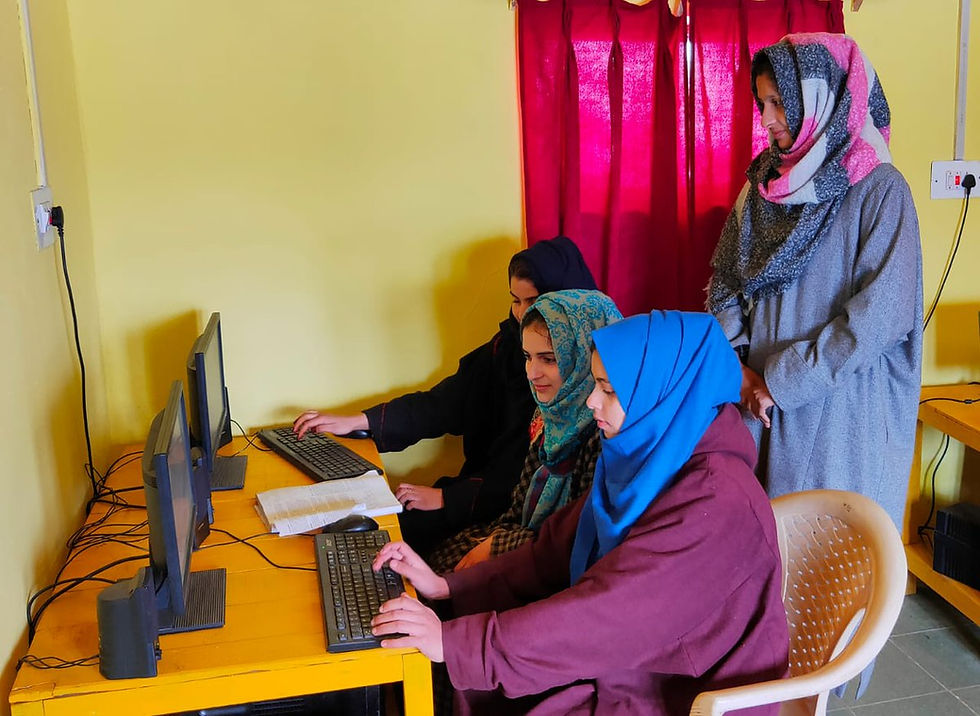
The role of vocational training in facilitating social and economic progress has long been recognized. Vocational training improves functional and analytical ability and thereby opens up opportunities for individuals and also groups to achieve greater access to labour markets and livelihoods. A better trained labour force is essential if we have to meet the labour supply requirements of faster growth.
India is in transition to a knowledge-based economy and its competitive edge will be determined by the abilities of its people to create, share and use knowledge more effectively. This transition will require India to develop workers into knowledge workers who will be more flexible, analytical, adaptable and multi skilled. To achieve these goals, India needs flexible education and training system that will provide the foundation for learning, secy and tertiary education and to development required competencies as means of achieving lifelong learning.
Kashmir has had a rich tradition of artisanship. For centuries, cottage industries and handicrafts have flourished in the valley. The work of Kashmiri artisans has mesmerized not only the country but also the entire world. The Kashmiri Pashmeena is world famous, so is the wood work and artwork originating from the hinterland. The Kashmiri architecture is renowned for its beauty and uniqueness. But in recent times, this rich tradition seems to have lost its former glory. The ensuing proxy war from Pakistan in the valley has kept traders and tourists away. Also, the advent of globalization in modern age has also drawn away youth from their artisanal heritage.
But things are gradually starting to turn around. With the government promoting vocational training through national schemes such as “Skill India”, the youth is slowly starting to realize the imp of the artisanal traditions of Kashmir. Exemplifying the growing popularity of vocational education over academic courses in recent decades, more and more students from remote areas in Jammu and Kashmir have enrolled for short term tech courses at the Industrial Training Institute (ITI) in Rohama, Baramulla. The gradual increase in No of students shows the shift of inclination towards vocational education among the youths over long-term non-vocational academic education.
What appears to be a revolutionary change in education system of Kashmir is the popularity of these courses among women. Courses like domestic housekeeping, school management and civil engineering top the popularity list among the female students. These courses have education job opportunities in Kashmir.
The Indian Army under OP Sadbhavana is committed to skill development in line with govt policies. Army runs many vocational training centres and women empowerment centres in various parts of state. Presently, more than 14000 students are studying in army run schools and more than
1000 students are studying outside the state under various scholarship programs facilitated by the Army. Sourced through Army's own budget, people friendly projects are being exec every year to improve the condition of people in various parts of state.
Skills and knowledge are the driving forces of economic growth and social development of any country. The economy becomes more productive, innovative and competitive through the existence of more skilled human potential. Men and women are the most vibrant and dynamic segment as well as potentially most valuable resource. With Kashmir consisting of high proportion of youth in its population, it becomes essential to train them and help them in earning their livelihoods.
ROHIT
Comentarios